Where women can’t marry without silver
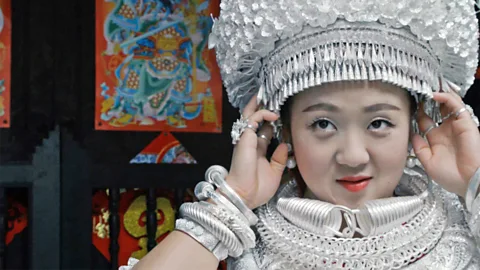 Runze Yu
Runze YuThe tradition of silver making has deep roots in Miao culture, but what will happen when the roots spread too far from the tree?
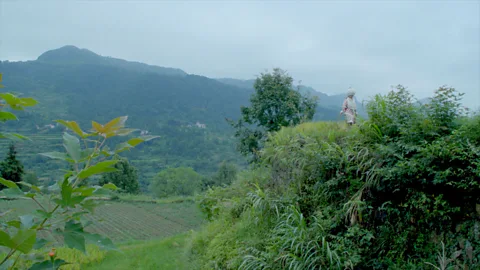 Runze Yu
Runze YuWhen she got married, Guanghui Wu was carrying 10kg of silver on her head and shoulders.
“Every girl has to get a set of silver to get married,” Wu explained.
For females from the Miao ethnic group in the mountainous Guizhou province of south-eastern China, wearing heavy and elaborate silver headdresses and jewellery is common during weddings, funerals and the annual Sister’s Meal Festival, a springtime celebration when couples publicly profess their love. Many families believe their daughters cannot get married if they don’t own a proper silver outfit, and start saving up to 10 years before the ceremony.
“You can tell a family’s wealth from the silver she is wearing,” Wu said. Her family has been making silver for at least three generations, and, even though her village and society is now rapidly changing, she is not ready to give up the tradition.
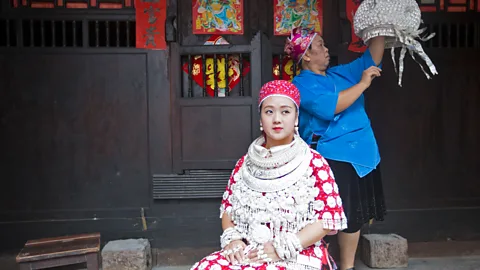 Runze Yu
Runze YuWithout silver, a girl is not a girl," an old Miao saying goes.
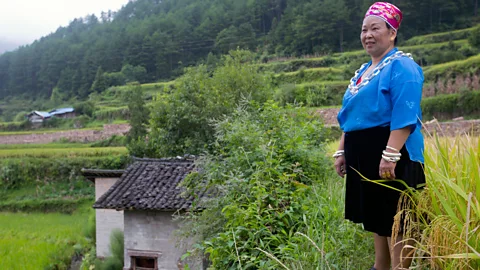 Runze Yu
Runze YuThe Miao people are one of China’s largest minority ethnic groups, numbering at nearly nine million. ‘Miao’ is a blanket term used across a group of linguistically and culturally related minorities in south-west China.
The Miao define themselves in many different ways, but the Chinese identify them according to the region where they live and the distinctive colour the women wear. The Miao in west Hunan are referred to as Red Miao, while those in south Sichuan are known as Green or Blue Miao.
Wu’s mother, Zilan Zhang is pictured here wearing her traditional Miao blue dress, which is plain compared to the ones younger women wear. By the time they are seven years old, girls learn complex embroidery to create these sensational garments. Older women and men usually wear simple, heavy silver necklaces; the intricate jewellery is only for younger women.
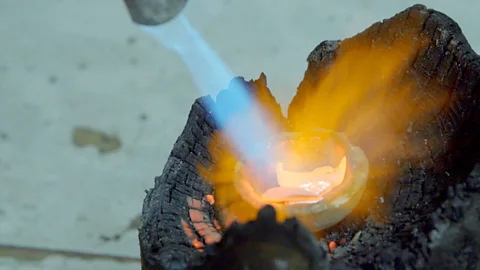 Runze Yu
Runze YuWu’s father, Peiyuan, was born in Hongxi, a village with a 100-year history of silver making. Like many silversmiths from the village, he and Wu’s mother moved to the nearby city of Kaili to open a shop. Here, he can be seen melting silver in a metal bowl on a wooden stand.
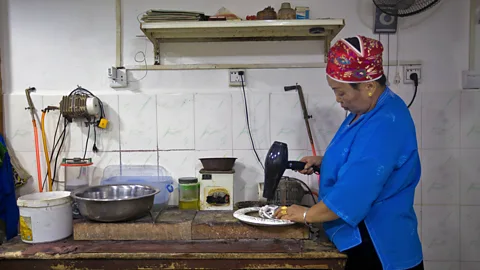 Runze Yu
Runze YuIn the village, the Wu family used to produce their silver jewellery at home and sell it at a local market once a week. Peiyuan melted and shaped the silver, while Zilan washed and dried newly made pieces. Now their shop is in Kaili’s covered market, surrounded by 50 other vendors, many of them also from Hongxi. Although their location has changed, the couple continues to work together to produce intricate pieces.
Moving to the city has increased many villagers’ earning potential, which means they can afford more silver.
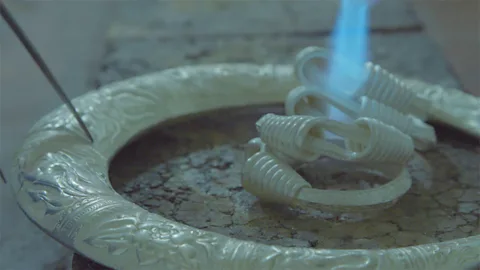 Runze Yu
Runze YuMiao silver jewellery is completely handmade, meaning no two pieces are the same.
Although in the past, the Miao were incentivised to assimilate into mainstream Chinese culture, there has been recent interest in reviving their rich cultural traditions. As outside appreciation for the beauty of traditional Miao crafts grows, the tourism industry is steadily increasing.
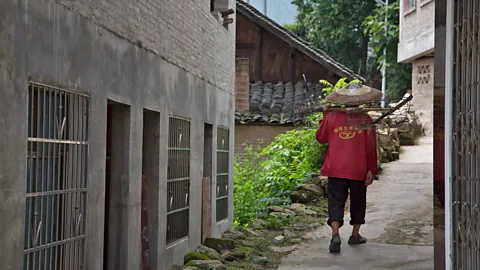 Runze Yu
Runze YuWu was six years old when she left Hongxi, but the family still owns a house in the village and loves to spend time there.
Hongxi’s population of 2,000 is divided among farmers and silver crafters. Few young people want to return to the farms where their ancestors have been practicing terrace agriculture for generations. As more young people migrate to cities, traditional skills like Miao embroidery and silver making are lost.
You don’t have to look closely to notice most of the faces in Hongxi are wrinkled. Only very young children and the elderly inhabit the village. The tradition of silver making has deep roots in Miao culture, but what will happen when the roots spread too far from the tree?
 Runze Yu
Runze YuMost kids are born and live in the cities. The parents no longer use Miao language to communicate with their kids. Therefore, the language is slowly dying. I […] want my son to learn the language and keep our culture and tradition alive,” Wu said.
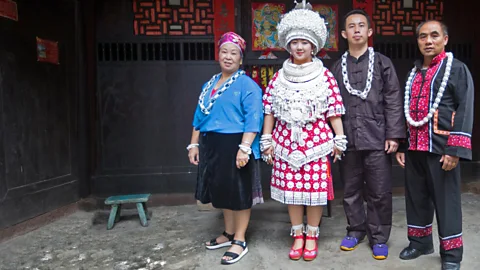 Runze Yu
Runze YuNow 29, Wu works as a nurse in a hospital in Kaili. Although detached from her village from a young age, Wu is proud of her heritage and of her family’s story: her parents got married with 1kg of silver on them, while she got to wear 10kg. She and her husband Shikun Yang (pictured second from the right) plan to their people’s unique culture on to their children.
